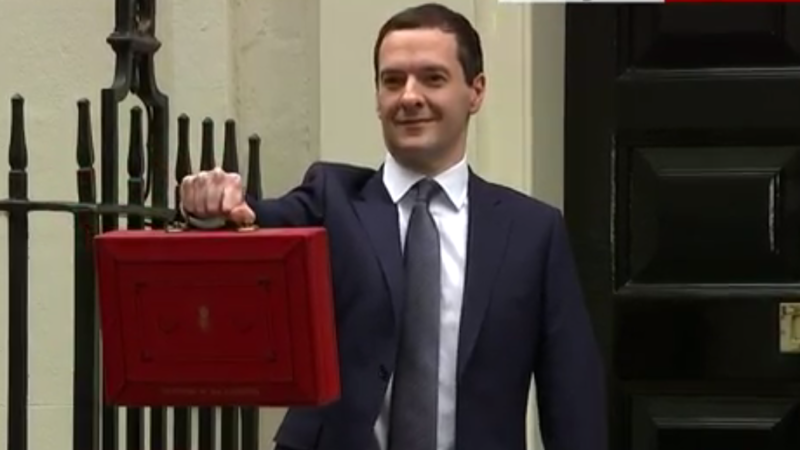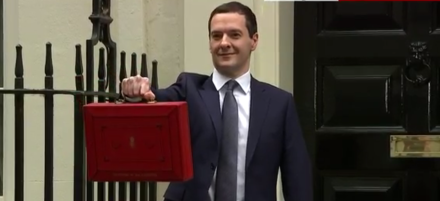

Across Europe – from Spain to Scotland, from the Labour leadership contest to the situation in Greece – this is turning into a central political question.
No party of the left can support savage cuts to essential benefits, nor to vital investments that generate future growth. But if that’s all we say, simply parroting “No austerity!”, then we are vulnerable to the accusation that we’d let debt to rise to dangerous, costly levels. And there is nothing progressive in having to spend a quarter or more of our tax revenue on repaying debt and the interest on that debt, instead of on public services or investment.
So we need to be seen to address the subject credibly, both for principle and for political necessity.
Just as we must argue that deliberate deficit spending in an economic downturn is necessary, and can help to turn around the economy, we must also recognise that a constantly high deficit simply accumulates debt and debt repayment costs. When we deny or ignore this, we lose economic credibility with significant numbers of voters.
But equally, we cannot support savage cuts to benefits, health, education and public investment – that would be to let down not only those who depend upon them, but also to let down the country.
Squaring the circle
So how can we square the circle? We certainly can’t do it by pretending that deficits don’t matter, or that cuts don’t hurt. We must find other, fairer ways to bring down the deficit.
What could these be?
- For a start, we need to fight tax evasion and make tax avoidance more difficult. The total revenue lost to governments across Europe from evasion and avoidance is greater than the total of all the government deficits. Surely this should be a priority for European-level cooperation – yet it hasn’t featured at all in Cameron’s EU reform agenda. The British government should be supporting proposals, already backed by Labour MEPs in the European Parliament, to have country-by-country reporting for multinational corporations, so that tax is paid where the economic activity takes place, not in a low tax haven of convenience.
- It would also be helpful if the British government was not invariably so hostile to negotiating agreed indirect tax rates on tobacco and alcohol, where the current tax regime triggers white van runs and black markets, and on corporation tax, where national differences allow companies to indulge in tax tourism, seeking the lowest rates in tax havens.
- At home, too, we should enact stronger anti-avoidance rules, and reverse the government’s cuts to HMRC staff to ensure that companies and people pay what they owe.
Beyond fighting avoidance, we should bite the bullet on tax rates. Raising taxes might not be necessary if we are fully successful in fighting evasion and avoidance, but a fairer tax system should in any case be part of our fairness agenda.
We should stick to our guns that the Tories were wrong to cut the top rate of income tax and to plan such a radical cut in corporation tax on company profits (making it one of the lowest in the OECD, and probably triggering a race to the bottom, eroding the tax base of all countries). Together with prioritising a reduction of inheritance tax, the Tories have just given tax breaks to the richest 4% of households. So there’s ample scope to show what a huge difference a Labour government would make to tax fairness.
And, if needed, it would be more socially equitable to dare to add a penny to the standard rate of income tax than to make cuts that affect only the poorest.
Focussing on enhancing revenue rather than cutting expenditure does not mean there is no room for the latter. Not all cuts are socially unacceptable. What’s outrageous is that our Conservative government has chosen, for ideological reasons, to focus so much of its efforts so much on hurting the poorest in society. And there are other examples across Europe. It’s hard to understand why the Greek government insists on ringfencing defence spending – the second highest in Europe as a percentage of GDP, kept high thanks to a powerful military establishment. It’s unjustified for Italy to pay its MPs more than any other national parliamentarian in Europe. And the subsidies paid by successive French governments to keep the European Parliament coming to Strasbourg are ridiculous.
What counts as ‘austerity’?
Which brings us onto the question of whether modest tax rises count as ‘austerity’, or whether that term refers only to cuts in benefits and welfare or wages. Having to pay more tax is of course ‘austere’ to the degree that it cuts disposable income, but at least it’s linked to the ability to pay and exempts those on lower incomes. If we oppose austerity but we want to reduce deficits, we should make it clear that we don’t consider a fair and reasonable rise in basic or upper rates of income tax, let alone fighting evasion, to be austerity.
Some would say that fair tax rises still count as austerity, because reducing the deficit (by whatever means) will reduce demand and therefore hurt growth. In the worst cases, this can trigger a downward economic spiral. But if you’re not raising taxes and you’re not cutting expenditure, even during favourable parts of the economic cycle, then your debt levels will rise, unless you get a growth rate high enough to make the growing debt at least fall as a proportion of GDP. An adjustment will be needed at some stage – and better not to leave it until its too late.
EU-wide coordination
In this regard, the guidelines we have agreed at EU level are quite sensible: in normal times, deficits should not be higher than 3% of GDP. And it’s generally up to each country to decide, if need be, how to reduce any excessive deficit – whether that involves tax rises, and if so which taxes, or expenditure cuts, and if so which items. (As I’ve written previously, the present Greek situation is not typical. It involves highly prescriptive intervention by the IMF and other eurozone creditors because of extremely high debts already before the crisis, successive bailout loans given by the IMF and other eurozone countries, and a previous write-off of half of its debt. This is a quite different situation from the normal austerity debate, as well as a warning about what can happen when debt levels really get completely out of hand!)
The Eurozone has a tougher rule for itself: the structural deficit should not be more than 0.5% or 1%, depending on debt levels. But this is measured over the whole economic cycle, which still allows for higher levels during downturns. Keynesian counter-cyclical deficits are therefore allowed for. And, indeed, all EU countries (inside and outside the euro), as well as the USA, used deliberate deficit spending after the financial crisis.
But some countries couldn’t sustain this further, because of already high debt levels, and some refused to do so for ideological reasons. Germany stands out as the most dramatic example of the latter category. It set out to reduce its deficit quickly, while Europe was still in recession, and despite being strong enough to be able to borrow at 0% in real terms. This policy has slowed Europe’s economic recovery and caused macroeconomic disequilibria, such as Germany’s huge balance-of-payments surplus. The position changed only a little when the SPD joined the German coalition government, since Schäuble kept control of the finance ministry. Successive EU, G7 and G20 summits calling for “differentiated” fiscal consolidation (code for Germany retrenching more slowly) failed to have an impact on German policy – although at least the hardliners who opposed bailouts and the ECB’s monetary easing policy were overruled, and a minimum wage was introduced and then raised.
But where was Britain’s voice in this particular debate? The Conservatives are fearful of their internal divisions whenever anything with a European dimension comes up, and simply said that this was a eurozone problem and not for Britain to get involved with. Yet, whether we like it or not, the economic interdependence of all European countries is immense – indeed, one of the reasons we have the EU is to enable us to manage that interdependence! And it is simply disingenuous to pretend that German economic policy doesn’t affect us. It’s also disingenuous to criticise eurozone countries for not doing even more to help Greece when we’re not willing to do so ourselves, even though we are as vulnerable as them to the consequences of any default.
Britain should also engage more in the current EU debate about how to boost investment levels across Europe. Part of this is the Juncker investment plan, using the EU budget as a guarantee to borrow to invest, and to leverage extra private sector involvement. It’s not exactly Roosevelt’s New Deal, but it is a worthwhile effort that the Tory government has kept the lowest possible profile on, lest it stir up the eurosceptic backbenchers.
An action plan
So where does all this leave us? In headline terms:
- no to austerity (when ‘austerity’ means attacks on benefits and support for the most needy, on public services, and on investment)
- yes to keeping deficits and debt to sustainable levels
- much stronger efforts, including supporting EU efforts, to counter tax evasion and tax avoidance
- improving tax fairness, which may mean biting the bullet on tax rises if necessary
- taking a sensible approach to the timing and speed of fiscal consolidation
- supporting EU rules on deficit and debt levels, but also engaging in the debate about how they are applied, and arguing for better coordination and efforts by countries with a fiscal margin to run a more expansionary policy
- supporting the EU “Juncker” investment plan to boost levels of investment crucial for economic growth and taking similar measures at national level
A balanced policy mix can help us show that a credible economic policy is possible without being austerity hawks nor deficit deniers.




More from LabourList
‘Welfare reforms still mean a climate of fear. Changes are too little, too late’
Welfare bill: Which MPs are still voting against reforms?
‘The tap end is getting hotter – and Welsh Labour might get burned’